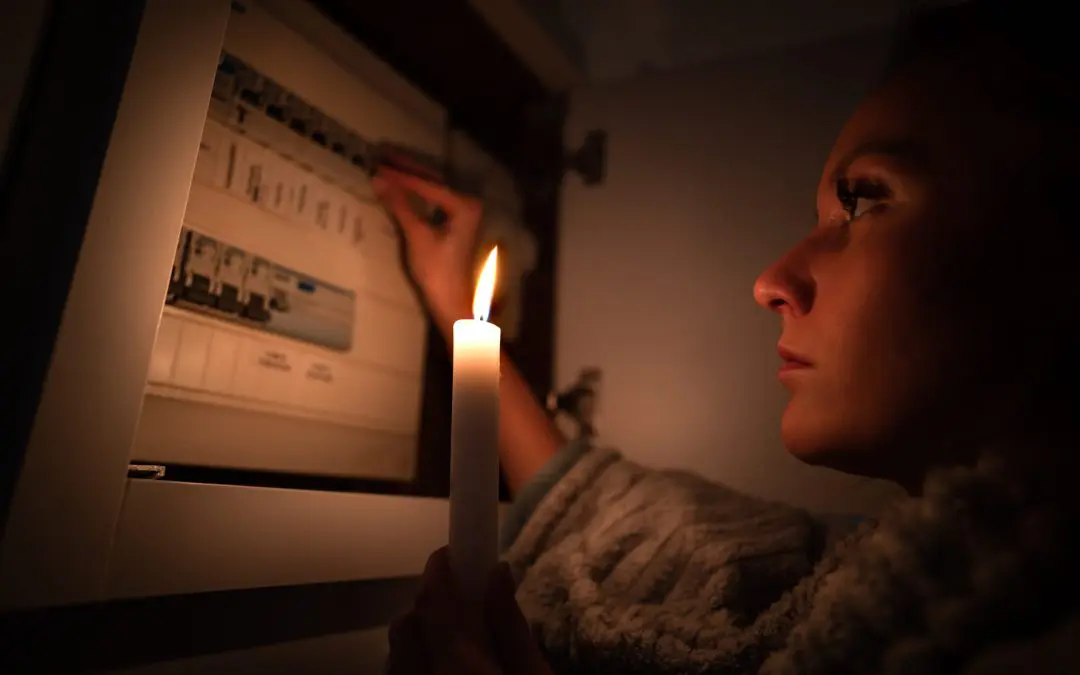Power outages can strike unexpectedly and leave us in the dark, literally. Whether caused by severe weather, equipment failure, or other unforeseen circumstances, being prepared for a power outage is crucial for ensuring the safety and comfort of your household. In this article, we will guide you through the essential steps to prepare for a power outage and minimize its impact on your daily life.
1. Create an Emergency Kit to Prepare for a Power Outage
One of the first steps in preparing for a power outage is assembling a well-stocked emergency kit. This kit should include essential items to sustain your household for at least 72 hours. Some items to consider include:
– Non-perishable food items
– Bottled water
– Flashlights and batteries
– First aid kit
– Prescription medications
– Basic hygiene items
– Blankets and warm clothing
– Manual can opener
– Portable phone charger
2. Develop a Communication Plan When You Prepare for a Power Outage
Have a communication plan in place to stay connected with family members and friends during a power outage. Keep a backup battery charged in case your phone dies. It’s also a good idea to have a battery-operated radio to stay informed about weather conditions.
3. Backup Power Sources
Invest in backup power sources to keep essential devices running. Portable generators, power banks, and solar chargers can be invaluable during extended power outages. Make sure to follow safety guidelines and operate these devices in well-ventilated areas to prevent carbon monoxide poisoning.
4. Protect Electronic Devices
Safeguard sensitive electronic devices by using surge protectors and unplugging them during a power outage. This precaution can prevent damage from power surges when the electricity is restored.
5. Stock Up on Emergency Lighting to Prepare for a Power Outage
In addition to flashlights, consider investing in battery-powered lanterns and candles. Always exercise caution when using open flames, and keep them away from flammable materials.
6. Preserve Refrigerated and Frozen Items
Minimize food waste by keeping your refrigerator and freezer doors closed during a power outage. A fully stocked freezer can maintain its temperature for about 48 hours, while a half-full freezer can last around 24 hours. Use coolers with ice packs for perishable items if the outage is prolonged.
7. Know Your Emergency Exits
Familiarize yourself with emergency exits in your home, especially if you live in an apartment building. Keep a flashlight near your bed for easy access in case of a nighttime power outage.
8. Stay Informed
Stay informed about the status of the power outage and any emergency alerts by listening to a battery-operated weather radio or using your mobile device. Follow updates from local authorities and utility companies to stay abreast of restoration efforts.
While power outages are often beyond our control, being prepared can significantly reduce the impact on our daily lives. By following these guidelines and taking proactive measures, you can ensure the safety, comfort, and well-being of your household during unexpected power disruptions. Remember, a little preparation goes a long way in turning a potentially challenging situation into a manageable one.
FAQs
What types of emergencies should I be prepared for at home?
Homeowners should be prepared for a range of emergencies, including natural disasters like floods, wildfires, and hurricanes, as well as man-made incidents such as power outages, gas leaks, or home fires.
How do I prepare for a potential evacuation?
Pack a “go-bag” with essential items, including identification, medications, important documents, clothing, and necessary supplies. Stay informed about evacuation routes and have a plan for transportation.
How often should I review and update my emergency preparedness plan?
Regularly review and update your emergency preparedness plan at least twice a year. Update contact information, check and replenish supplies in your emergency kit, and ensure that everyone in the household is familiar with the plan.
How can I secure my home against potential hazards?
Secure heavy furniture, appliances, and other items that may pose a risk during severe weather. Install smoke detectors, carbon monoxide detectors, and fire extinguishers. Regularly check and maintain these safety devices.
Inspect It Neil offers professional home inspection services to customers in New Jersey. Contact us to schedule an appointment.

